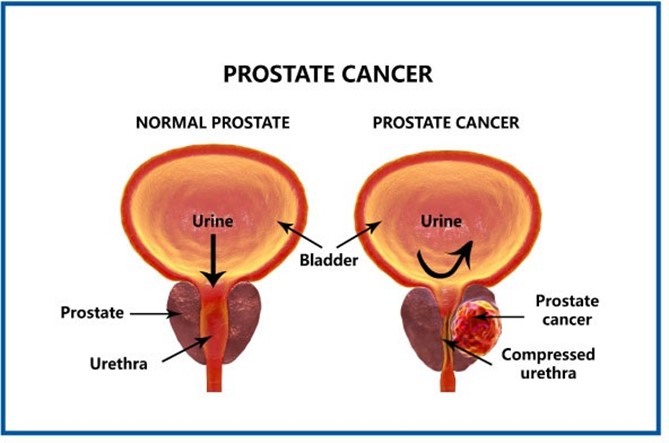A client is diagnosed with stage I cancer of the prostate. The nurse interprets this as indicating which of the following?
Tumor is confined to the prostate gland.
Tumor has expanded to the bladder.
Cancer is small with no symptoms.
Tumor has spread beyond the prostate.
The Correct Answer is A
The tumor is confined to the prostate gland. Stage I prostate cancer means that the tumor is localized to the prostate gland and has not spread to other parts of the body.

B: This option is incorrect because it indicates that the tumor has expanded to the bladder, which is not indicative of stage I prostate cancer.
C: This option is partially correct, but it does not provide a complete picture of stage I prostate cancer.
D: This option is incorrect because it indicates that the tumor has spread beyond the prostate, which is not indicative of stage I prostate cancer.
Nursing Test Bank
Naxlex Comprehensive Predictor Exams
Related Questions
Correct Answer is B
Explanation
Gigantism. Oversecretion of growth hormone before puberty leads to gigantism, which is characterized by excessive growth in height and length of bones. The growth hormone stimulates the growth of cartilage and bone, resulting in an increased height. When oversecretion occurs after puberty, it results in acromegaly, which is characterized by the enlargement of bones in the face, hands, and feet.
Choice A, Acromegaly, is incorrect because acromegaly results from oversecretion of growth hormone after puberty, and not before puberty.
Choice C, Dwarfism, is incorrect because dwarfism is caused by insufficient growth hormone secretion or poor response to the hormone, and not oversecretion.
Choice D, Simmonds disease, is incorrect because Simmonds disease is a rare disorder characterized by the atrophy of the pituitary gland, which results in decreased secretion of several hormones, including growth hormone.
Correct Answer is D
Explanation
Halo sign. The presence of clear fluid with a yellowish ring around it (Halo sign) on the client's bed linens, tissues, or skin may indicate the presence of leaking of cerebral spinal fluid (CSF).
Swelling, choice A, change in the level of consciousness (LOC), choice B, and signs of increased intracranial pressure (ICP), choice C, may be indicative of a head injury, but do not specifically indicate the presence of leaking of CSF.
Whether you are a student looking to ace your exams or a practicing nurse seeking to enhance your expertise , our nursing education contents will empower you with the confidence and competence to make a difference in the lives of patients and become a respected leader in the healthcare field.
Visit Naxlex, invest in your future and unlock endless possibilities with our unparalleled nursing education contents today
Report Wrong Answer on the Current Question
Do you disagree with the answer? If yes, what is your expected answer? Explain.
Kindly be descriptive with the issue you are facing.
